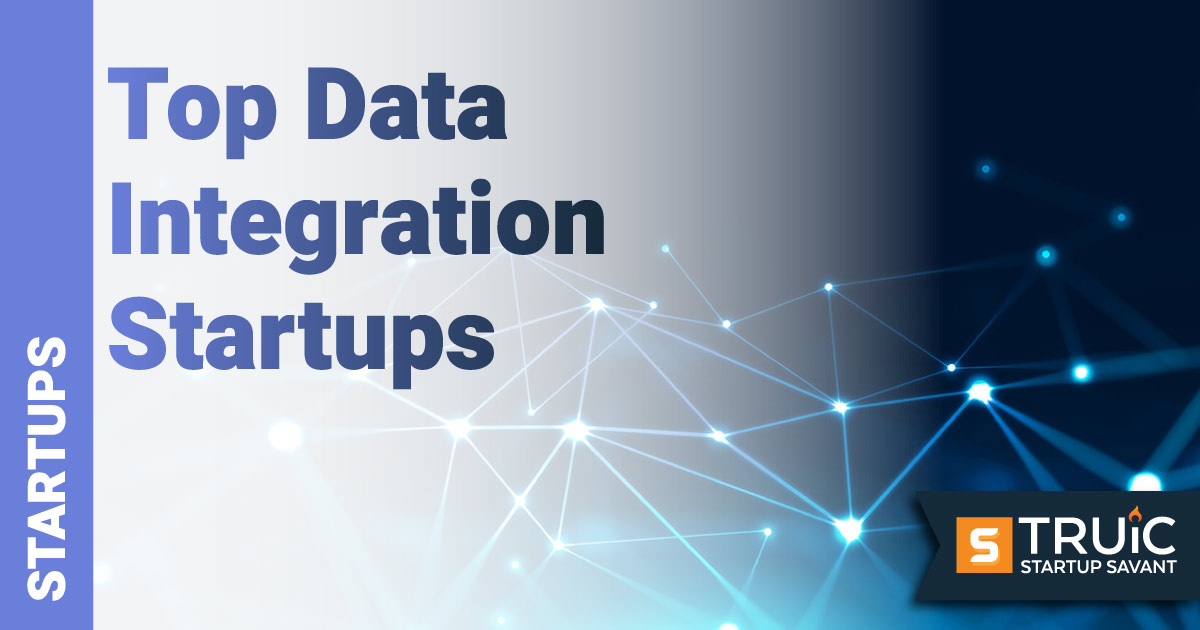6 Best Data Integration Startups

Last Updated: By TRUiC Team
Today's organizations receive data from a wide range of sources. While an overabundance of data might seem like a good problem to have, trying to analyze mountains of data coming in from numerous sources is often a lot like trying to drink from a fire hose.
The good news, though, is that there are a number of data integration startups providing organizations with the services and solutions they need to achieve an organized and unified view of their data. In this article, we'll take a look at the top data integration companies on the market today that are worth following.
Learn how to launch your own company by reading our comprehensive guide, How to Start a Startup.
Top Data Integration Companies
Every year, new startups pull to the forefront of their industry through exciting innovation and industry-disrupting business models. We’ve rounded up the most exciting data integration startups of 2024 that startup-lovers, investors, and aspiring entrepreneurs should follow.
Disclaimer: With so many exciting startups launching and growing worldwide, we aren’t able to cover them all. Furthermore, the startups that are listed below are not officially ranked and are listed in no particular order.
1. Datavant
Location: San Francisco, California
Funding: Series B, $80.5 Million
Today's healthcare data ecosystem is vast and ever-expanding, with the data that healthcare providers need coming in from a range of sources such as insurers, pharmacies, imaging companies, wearable companies, medical testing companies, and much more. Founded in 2017, Datavant strives to help healthcare facilities integrate data from these various sources and manage their data in a way that will help improve patient outcomes.
2. Census
Location: San Francisco, California
Funding: Series B, $80.3 Million
Most business apps and software solutions rely on a steady flow of data for optimum functionality. Getting this data from data warehouses into these apps, though, is often easier said than done. By automatically connecting data warehouses to all of the apps and software solutions that a business uses, Census makes it much easier for companies to use their data as fuel for powerful capabilities.
3. Prefect
Location: Washington D.C.
Funding: Series B, $46 Million
Building and running data effective data pipelines is often one of the more challenging aspects of data integration and management. With Prefect, though, data teams are able to easily construct, run, and monitor data pipelines, helping them solve data flow issues.
Feeling inspired? Learn how to launch your company with our guide on How to Start a Startup.
4. Vendia
Location: San Francisco, California
Funding: Series B, $50.6 Million
Founded in 2020, Vendia is one of the newer startups on our list and is a company that provides a cloud-based platform for building applications that are able to share data across departments, companies, clouds, and regions. By enabling organizations to build these solutions without the need to deploy and manage their own IT infrastructure, Vendia makes data integration a far more affordable goal.
5. Acho
Location: Boston, Massachusetts
Funding: Seed, $2.4 Million
Acho is a data integration startup that helps organizations better manage their data by providing a centralized data warehouse complete with 30+ built-in data connectors. In addition to data extraction and integration, Acho also enables organizations to build data pipelines without the need for advanced coding or SQL.
6. Actable AI
Location: London, United Kingdom
Funding: Pre-Seed, €1M
The primary purpose of data integration is to extract value from raw data by making it easier to analyze for key insights. By offering AI-powered data analytics, Actable AI empowers companies to analyze their data without countless hours of manual effort. Best of all, Actable AI's AI-powered data analytics services do not require any coding to employ, making them accessible to organizations of all sizes.
Recommended: Check out our full list of the top startups to watch!
Frequently Asked Questions
What is data integration?
Data integration is the process of combining data from numerous sources into a standardized and unified collection of data that is much easier to leverage and analyze for insights than the sum of its parts alone.
What is a data pipeline?
A data pipeline is simply a series of data processing steps designed to move data from one place to another. Moving raw data from disparate sources into a data warehouse would be one example of a data pipeline.
Why is data integration challenging?
There are several reasons why data integration isn't often a simple process. Data pipeline duplicates, security concerns, the large number of systems and tools used by most organizations, and data collection latency are just a few of the reasons why data integration remains so challenging.
How does AI help with data analysis?
In the past, analyzing data meant looking over documents manually. While this has always been an inefficient and error-prone process, it isn't feasible anymore for most organizations given the vast amounts of data coming in. With artificial intelligence, though, organizations are able to automate their data analysis process and leverage AI and machine learning to glean data for insights without the need for manual analysis.


